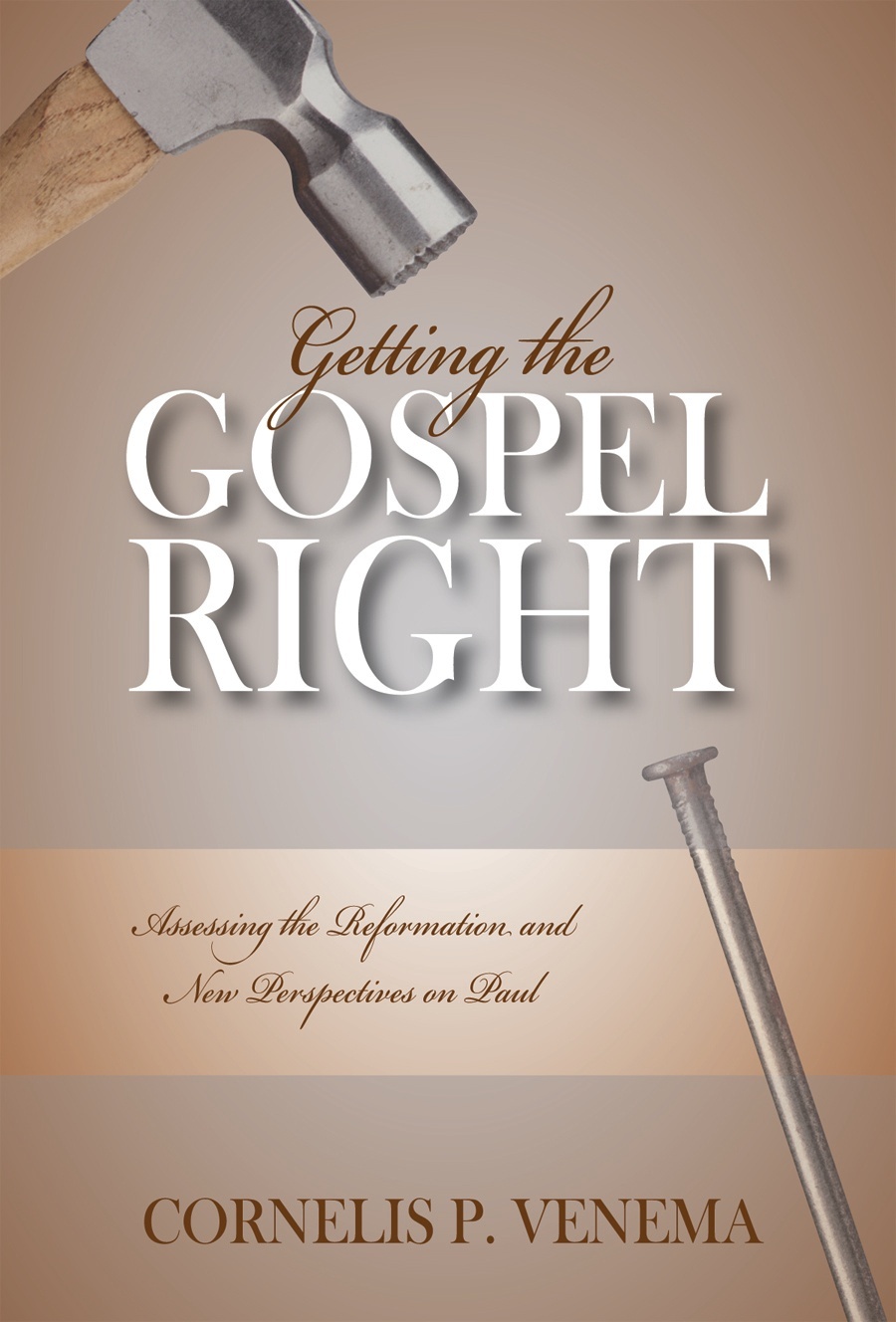Book Review: Getting the Gospel Right


Getting the Gospel Right: Assessing the Reformation and New Perspectives on Paul, Cornelis P. Venema, Carlisle: Banner of Truth Trust, 2006. Paperback, 92 pages, $6.00 US.
This is a short little book dealing with an important, relevant topic. Though not really in the Canadian Reformed churches, the doctrine of justification has been under debate elsewhere in the Reformed/Presbyterian community. Most of this debate takes place in connection with the so-called Federal Vision. However, it seems that there are also connections to what has been called the New Perspective(s) on Paul (NPP).
This book is an entry-level introduction to the NPP from a Reformed perspective. The author is a United Reformed minister, professor of doctrinal studies at Mid-America Reformed Seminary and also president of that institution. Getting the Gospel Right is a shorter, popular version of another book published by Banner of Truth, The Gospel of Free Acceptance in Christ.
The book is divided into three parts. In the first section, Venema outlines “the Reformation perspective on Paul.” This perspective essentially boils down to five key features: 1) Justification is a principal theme of the gospel; 2) Justification is primarily a theological and soteriological (having to do with the doctrine of salvation) theme; 3) the Reformation claimed that the medieval Roman Catholic doctrine of justification emphasized obedience to the law as a partial, meritorious basis for justification; 4) the Reformers insisted that “works of the law” in Paul refer to any acts of obedience to the law which are then regarded as a ground for acceptance with God; 5) the righteousness of God is something that God freely grants and imputes to believers.
In the next section, Venema outlines the “New Perspective on Paul.” He does this by laying out the views of three scholars: E.P. Sanders, D.G. Dunn, and N.T. Wright. The NPP has been critical of the Reformation perspective on Paul. I think Venema fairly lays out their views in this chapter. Because of his influence, Venema spends the most time with Wright. He notes that Wright is unclear and obscure on certain important issues such as his understanding about the work of Christ. When speaking about what the gospel is, Wright emphasizes the Lordship of Christ. Venema notes that this emphasis “suggests that his view has more affinity with what historians of doctrine term the ‘classic’ or ‘victory over the powers’ conception than the penal-satisfaction emphasis of the Reformation.” (56). Because of his emphasis on the question of who belongs to the covenant (as being the question that justification seeks to answer in Paul’s writings), “he does not articulate a doctrine of the atonement along the lines of classic Protestant theology.” (57)
The last substantial section features a longer critique of the views of Sanders, Dunn and Wright. He believes (rightly) that the rejection of the Reformation perspective is partly based on confusion between Pelagianism and semi-Pelagianism. The Reformers never said that the Roman Catholic doctrine was Pelagian nor (speaking anachronistically) that the Judaists of Paul’s day taught Pelagianism. Rather the charge was one of semi-Pelagianism. This is just one problem among several that Venema highlights in this chapter.
Venema concludes, “Though it may be admitted that the new perspective has illumined some significant aspects of Paul’s understanding of the gospel, its claims to offer a more satisfying interpretation of Paul’s gospel than that of the Reformation seem at best overstated, and at worst clearly wrong.” (91). I’m looking forward to reading the longer version of this book. I can certainly recommend this one to those looking for a place to start in trying to understand the controversies that have beset many North American Reformed churches in recent times.
If I have just one small beef, it’s the use of Internet sources in some of the footnotes. Since this book was published many of the links no longer work. Since authors like N.T. Wright have a wide following, one can google the titles and find them, but it is a bit of a nuisance. I’m not sure how a problem like that can be solved.


